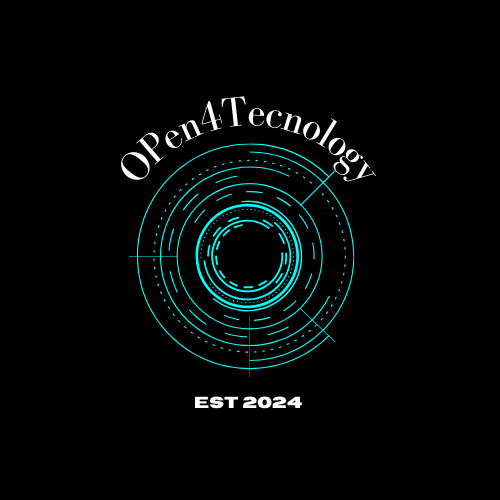In an era defined by rapid technological advancement, the quest for optimal brain health has emerged as a focal point of scientific inquiry and societal interest. From cognitive enhancement to the prevention and treatment of neurological disorders, the intersection of brain health and technology represents a frontier ripe with possibilities and challenges. This essay delves into the multifaceted relationship between brain health and technology, examining the innovations driving progress, the challenges confronting researchers and practitioners, and the promising opportunities that lie ahead.
Understanding Brain Health:
Before delving into the role of technology in promoting brain health, it's crucial to establish a clear understanding of what constitutes brain health. Brain health encompasses a broad spectrum of factors, including cognitive function, emotional well-being, and resilience to neurological diseases and disorders. Maintaining optimal brain health is essential for overall well-being and quality of life, spanning across the lifespan from infancy to old age.
Innovations in Brain Health Technology:
Advancements in technology have catalyzed a revolution in the field of brain health, offering novel approaches to monitoring, assessing, and enhancing cognitive function. Wearable devices equipped with sensors can track various physiological parameters, providing real-time feedback on metrics such as heart rate variability, sleep quality, and stress levels. These devices empower individuals to take proactive steps towards optimizing their brain health by making informed lifestyle choices.
Neuroimaging and Brain Mapping:
Technological innovations in the field of neuroimaging have revolutionized our understanding of the brain's structure and function. Techniques such as functional magnetic resonance imaging (fMRI), positron emission tomography (PET), and electroencephalography (EEG) allow researchers to visualize brain activity in real-time, providing valuable insights into neural networks, connectivity patterns, and brain-behavior relationships. These advances have implications not only for basic research but also for clinical applications such as early detection and diagnosis of neurological disorders.
 |
| Brain Mapping |
Cognitive Enhancement:
One of the most intriguing applications of technology in the realm of brain health is cognitive enhancement. From brain-training apps to neurofeedback devices, a plethora of tools and interventions claim to enhance cognitive abilities such as memory, attention, and problem-solving skills. While the efficacy of some of these interventions remains a topic of debate among researchers, there is growing interest in leveraging technology to unlock the full potential of the human brain.
Neuroimaging and Brain Mapping:
Technological innovations in the field of neuroimaging have revolutionized our understanding of the brain's structure and function. Techniques such as functional magnetic resonance imaging (fMRI), positron emission tomography (PET), and electroencephalography (EEG) allow researchers to visualize brain activity in real-time, providing valuable insights into neural networks, connectivity patterns, and brain-behavior relationships. These advances have implications not only for basic research but also for clinical applications such as early detection and diagnosis of neurological disorders.
Brain Digital Therapeutics and Interventions:
In recent years, there has been a proliferation of digital therapeutics and interventions targeting various aspects of brain health. These interventions range from smartphone apps for managing stress and anxiety to virtual reality environments for rehabilitation and neurorehabilitation. By harnessing the power of technology, these digital solutions offer scalable, accessible, and cost-effective alternatives to traditional approaches to brain health management.
 |
Brain Digital Therapeutics and Interventions |
Challenges and Ethical Considerations:
While the potential of technology to promote brain health is undeniable, it also poses significant challenges and ethical considerations. Privacy concerns surrounding the collection and use of sensitive health data, the potential for algorithmic bias in digital health interventions, and the ethical implications of cognitive enhancement technologies are just a few examples of the complex issues that must be addressed as technology continues to advance.
Opportunities for Collaboration and Innovation:
Despite the challenges, the intersection of brain health and technology presents a wealth of opportunities for collaboration and innovation. Multidisciplinary approaches that bring together experts from diverse fields such as neuroscience, computer science, and ethics can foster the development of holistic solutions that address the complex interplay of biological, psychological, and social factors influencing brain health. Moreover, partnerships between academia, industry, and government can facilitate the translation of research findings into real-world applications, driving meaningful impact at the individual and societal levels.
Conclusion:
In conclusion, the convergence of brain health and technology holds immense promise for enhancing our understanding of the brain, improving cognitive function, and addressing neurological disorders. From wearable devices and neuroimaging techniques to digital therapeutics and interventions, technological innovations are reshaping the landscape of brain health management. However, as we navigate this rapidly evolving terrain, it's essential to remain vigilant about the ethical implications and societal ramifications of these technologies, ensuring that they are deployed responsibly and equitably for the benefit of all.



0 Comments